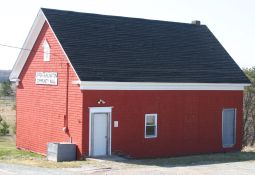|
|
The
Trustees and Teachers
From: Rathbun, Maurice – A Brief History of Cheverie + 20th Century Changes, WHHS 1993
…The schools were operated by three trustees, elected at an
annual public meeting for a three year term, who had complete
authority to have the properties within their bounds assessed
and taxed according to the needs for the particular year and to
appoint a secretary who collected these taxes, paid all bills
and supervised any repairs or alterations necessary, also to
appoint a janitor, and make sure the classrooms were supplied
with needed materials and that they were kept warm and made as
pleasant as possible.
It was also the
responsibility of the trustees to hire and fire teachers on a
one year basis at as low a rate as they could get capable
teachers, to be paid on a quarterly scale, and to personally
visit the classrooms during school hours, from time to time.
Although it was not
written in their contract, the teachers were expected to visit
the homes of their students at least once a year and to
encourage the parents to keep their children in school as
regularly and for as long as possible.
It was understood that the
teachers would keep any students after school who needed extra
help to catch up with their class.
As a long time member of
the local village school board, nine years as a trustee, and ten
years as secretary, the basis of our operations were as follows:
We had a total assessment
of $26,000 on which a budget of about $900.00 was generally
agreed upon, with a tax rate of about 5.85 on the 100 and from
which we were expected to educate approximately 65 students and
to employ two teachers, a janitor and heat the building (wood
stoves).
Out of perhaps a dozen
applications, (it varied greatly) we would select one or two as
needed.
We did not pay too much
attention to the academic qualifications, the pay being the same
in any case, but, rather we hoped to get competent teachers with
some experience, capable of teaching all subjects to several
grades, that too varied, to maintain good discipline, and could
get along reasonably well with the parents and the community in
general.
They were all one year
contracts and, if things did not work out as hoped for, we
simply did not renew the contract, but had to advise the teacher
by March 31st in either case.
Until the late forties,
these contracts called for a 200 day teaching year and, if for
any reason, days were missed during the school year, they were
expected to be “made up” either on Saturdays or at the end of
the term.
If it was known in advance
that the teacher would miss several consecutive days, they were
obliged to find, at their own expense, and personally pay, a
suitable substitute to fill in for them.
Again it was expected that
teachers take an active part in community affairs, such as
teaching Sunday School, singing in church choirs, etc., and,
above all else, set a “good example” for the younger folk.
The teachers on the other
hand were constantly trying to improve themselves, either by
getting a larger school with higher pay and more prestige, or
sometimes, just to get a better boarding place, or to be nearer
their homes.
In consequence it was the
custom for most teachers to send out, sometimes a rather large
number of applications in February and March, and, if they
received affirmative replies, to begin negotiations.
The net result of all this
meant quite a turnover with teachers which had some advantages
for all concerned, such as bringing in new methods and ideas,
also to prevent continued favoritism or prejudices, and the kids
themselves always looked forward to getting a new teacher. So
overall, the system worked quite well as a rule, for everyone,
and prevailed all over the Province, with perhaps a few
exceptions in towns and cities schools.
Applications from married
teachers were usually not favourably considered, as it was felt
that they could not give the amount of attention to what was
normally expected of them, and it was also frowned upon for a
teacher to get married during the course of their contract, and
the idea of husband and wife teaching in the same school would
have been unthinkable…..
